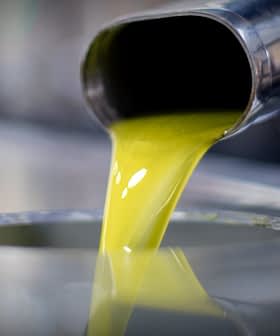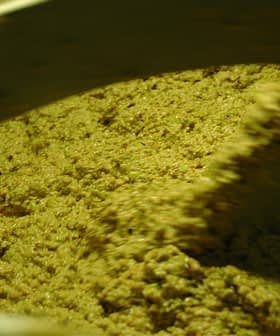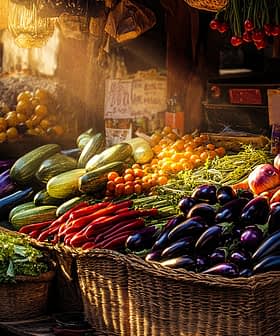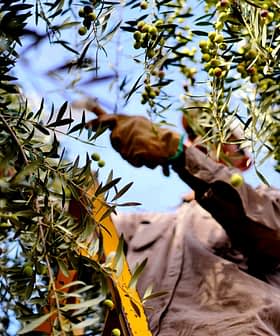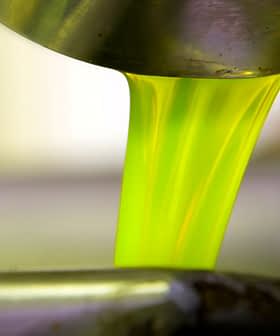Experts Offer Tips on Adopting the Mediterranean Diet
There are no complicated rules. With some basic knowledge and the right pantry ingredients newcomers can master the world’s healthiest eating pattern.
The Mediterranean diet, rooted in traditions surrounding the Mediterranean Sea, promotes healthy eating through fresh, seasonal foods, moderate exercise, and socialization. The diet emphasizes vegetables with extra virgin olive oil as the main source of fat, and has been shown to reduce the risk of chronic illnesses while being easy to follow for beginners. Extra virgin olive oil plays a pivotal role in the diet, contributing to its health benefits and being recommended for various cooking uses, making it a key ingredient in the Mediterranean way of eating.
The Mediterranean diet, the world’s most celebrated dietary regime, has its roots in eating traditions that flourished in the countries surrounding the Mediterranean Sea.
The diet combines moderate exercise, adequate resting and socialization with healthy eating. It promotes fresh, seasonal foods and ingredients and has been gaining significant attention worldwide for its health benefits and sustainable approach to eating.
“The Mediterranean diet features low glycaemic carbohydrates and has healthy, predominantly unsaturated fats and high quality proteins often from beans and other legumes,” Simon Poole, a Cambridge-based medical doctor, author and health consultant who has spent years investigating the mechanics of the Mediterranean diet, told Olive Oil Times.
There is no single ingredient which is comparable to olive oil in its contribution as a proportion of calories or its ubiquitous presence in any other diet in the world.
“It has been shown to be an extraordinarily healthy and sustainable pattern of eating which reduces the risk of many chronic illnesses including heart disease, stroke, many types of cancer, diabetes, inflammatory disorders and Alzheimer’s dementia,” Poole added.
There are no complicated rules to follow when following the Mediterranean eating pattern. However, some fundamental concepts must be remembered to fully reap the diet’s benefits.
See Also:New Book Seeks to Educate Consumers, Dispel MythsThe cornerstone of the diet is the combination of vegetables with extra virgin olive oil, found in dishes across the Mediterranean basin.
“There are many different regional versions of the traditional Mediterranean diet, which can include types of foods and practices specific to a particular country or area,” Poole said.
“The common denominator of the diet throughout the Mediterranean, however, is the significant variety and quantity of colorful vegetables consumed together with olive oil as the main source of fat for cooking and flavoring,” he added.
Vegetables are rich in different nutrients according to their color and intensity. Each color carries its own phytochemicals, the natural compounds that strengthen the plants’ immune system. Consuming a rainbow of colored fruits and vegetables ensures that the human body receives various nutrients that can protect it from chronic diseases.
In the Mediterranean diet, consuming more vegetables more often means including vegetable casseroles like the Greek ‘lathera’ in a weekly meal plan rather than resorting to dishes such as pasta mixed with greens, which can often be high in carbohydrates.
While vegetables and fruits should be in everyone’s everyday vocabulary when embracing the Mediterranean way of eating, other typical foods of the Mediterranean diet include whole grains, beans and other legumes, nuts, seeds, herbs and spices.
“Ultra processed foods have no presence in the diet, with red meat consumed in smaller amounts and generally replaced with plant sources of protein, fish or poultry,” Poole said.
For absolute beginners, Poole suggested that a first-time Mediterranean supermarket basket should contain two portions of vegetables, one portion of fruits such as grapes or blueberries, nuts, beans, olive oil, herbs and spices.
“Consuming a moderate amount of fermented dairy like yogurt and cheese, especially from goat or sheep milk is also very much part of every day,” he said. “Desserts mainly consist of fruit dishes with occasional added sugars usually coming from honey.”
We do need to consume more fruits and vegetables and doing it the Mediterranean way is probably the easiest.
Nancy Harmon Jenkins, an author and authority on Mediterranean cuisines, said switching to the Mediterranean diet is fairly easy.
“Ingredients are for the most part easily available in most American markets and the techniques involved are straightforward and don’t require a cooking school background,” Jenkins said.
She noted, however, that Americans are hesitant about increasing their daily consumption of vegetables.
“I have never understood the American resistance to vegetables, unless it comes from the fact that most people don’t have access to fresh flavors,” she said. “We do need to consume more fruits and vegetables and doing it the Mediterranean way is probably the easiest.”
“Take any green, from spinach to broccoli to my new favorite escarole, steam it or cook it until just limp in a small amount of salty water, then drain it and return it to the cooking pot with a chopped clove of garlic and two tablespoons of olive oil,” Jenkins added. “Toss over heat until the greens are fully cooked and then serve as is, perhaps with a spritz of lemon juice over the top.”
See Also:Cooking With Olive OilPoole highlighted the pivotal role of extra virgin olive oil in the Mediterranean diet and its contribution to the regime’s health benefits.
“There is no single ingredient which is comparable to olive oil in its contribution as a proportion of calories or its ubiquitous presence in any other diet in the world,” he said.
“Not only does the oleic acid promote good cholesterol levels, but it also has antiinflammatory effects and can support healthy glucose regulation,” Poole added. “The polyphenols in extra virgin olive oil, often characterized by the pleasant bitter and pungent notes in a good quality oil, have important antioxidant and anti-inflammatory effects.”
He added that combining extra virgin olive oil with other foods can be highly beneficial.
“Extra virgin used for frying fish, for example, has been shown to protect the fish oils from breakdown and with vegetables, many of the nutrients and polyphenols released during cooking are absorbed and exchanged in extra virgin olive oil, leading to increased absorption and availability,” he said.
Jenkins suggested using different types of olive oil for other cooking uses: an expensive, recently-harvested extra virgin olive oil to use raw in salads and garnishing soups and a less costly but still extra virgin oil for cooking and frying.
“I would recommend investing in excellent olive oil, as well as the best pasta, rice and dried beans that you can afford,” she said. “Meat and fish should also be the best you can afford but not necessarily the most expensive. The Mediterranean diet is full of recipes for using cheaper cuts of meat, cheaper kinds of seafood.”
Another practical idea that works is to use last year’s extra virgin olive oil for cooking, provided that it has been stored properly and the new season’s extra virgin olive oil for topping a Greek salad or making an olive oil-based cake.
“Be aware that there are no bargains in extra virgin,” Jenkins said. “It is an expensive product for good reasons, and if you find a steeply discounted oil that’s because it has a defect, most often being that it’s severely out of date.”
When embracing the Mediterranean eating pattern, there are myriad recipes available from various resources, including books, articles and online material.
Even so, newcomers to the Mediterranean diet may lose their footing as they familiarize themselves with its ins and outs. However, the diet’s relaxed, flexible approach to enjoying good food is the key to seamlessly getting back on track.
“The Mediterranean diet is not meant to be restrictive but rather celebratory of the good flavors in really good ingredients,” Jenkins said.
“But let’s say you slip up and add butter and sour cream to your baked potato, instead of a dollop of the very best extra virgin olive oil,” she added. “No one is collecting points, so you can just make up for it by having a salad with an olive oil dressing, full of healthy greens and other vegetables, on the side with your naughty baked potato.”
“Do remember that extra virgin olive oil is very good for you but it is, in the end, a fat,” Jenkins concluded. “Don’t add it to a diet that’s already high in fat. Use it instead, substitute it for more common fats. You won’t regret it and, you know, you just might lose some weight when you do.”
Share this article
